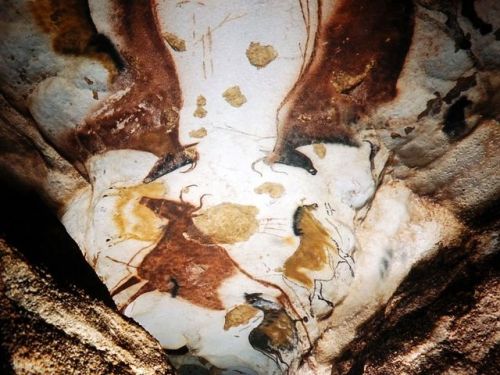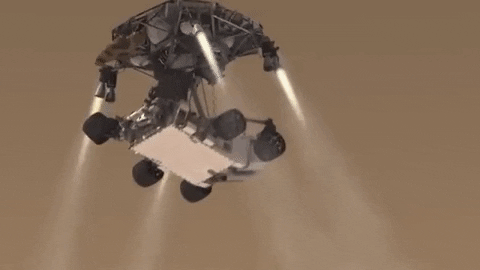
263 posts
Latest Posts by suzukihara - Page 2








Harley Quinn|1.12




My Fair Lady (1964) dir. George Cukor










I would be dead without you. Like, a lot.
HARLEY QUINN (2019 – )




I think I can help cheer people up better because I’ve been sad, not because I’m really happy. It’s never great when you’re sad, and I don’t romanticize it at all, but it’s kind of encouraging to me to know that some good can come out of my sadness. ;u;
Chibird Store | Patreon | Webtoon



Excerpt from the poem “One of the Boys” by Kate G.

“security” by Anastasia Tasou
Tulum, Mexico [x]
Jinhwan: I'm not INSULTING you. I am DESCRIBING you.

Quote by Emma Zeck

I tried to upload a better video, one where I use melted wax, but Tumblr said no way, too long. You can see it on my Instagram (iamdawt) if you'd like.
I'm new to wax seals, so I just sat down and played for a while. I did a few with wax and a few with hot glue. Both did pretty well, but I prefer the wax.

I added foil to the two in the upper left-hand side to try and bring out the details. The solid pewter seal that made the gold and blue ones to the right, is a reproduction of a Royal French Fleur de Lis circa 1700s! @titancia gave it to me for Christmas, and I am beyond excited to call it mine.

@bemmimosa by world_embroidery

first project of the year done! by unable_to_give_afuck

The Lascaux Cave paintings near the village of Montignac in southwestern France were discovered 79 years ago today on September 12, 1940. A detail from the cave paintings is pictured here from 1947 taken by the great LIFE photographer, Ralph Morse. (Ralph Morse—The LIFE Picture Collection/Getty Images) #Lascaux #cavepaintings #TBT https://www.instagram.com/p/B2UBHd0Adx1/?igshid=s6ukoc3lpfdj

Nothing says Friday the 13th quite like a group of black cats. Pictured here are owners with their black cats, waiting in line for audition in movie “Tales of Terror” in 1961. (Ralph Crane—The LIFE Picture Collection/Getty Images) #catsofinstagram #blackcats #Fridaythe13th https://www.instagram.com/p/B2XQXusn__e/?igshid=1bwl0cp6l7tk7

Driveway curb appeal. Project Name: “Hamptons in a Drought.” Landscape Designer Paul Hendershot Design, Inc. & in collaboration w/Kathy Fisher

Hillside patios with levels. Project Name: “Prefab Made Beautiful.” Landscape Design by Paul Hendershot Design, Inc.

Least, but certainly not last, the least sandpiper is the smallest shorebird in the world! Weighing in at a whopping one ounce, these petite peeps rely on mudflats, marshes and estuaries across the Americas to fuel up on their long migrations—up to 2,500 miles from their winter havens to their breeding grounds in the tundra of the far north!

🚨ATTENTION CALIFORNIAN SEA OTTER FANS DOING THEIR TAXES!🚨You can help support the rescue and recovery of your favorite floofverines by donating to the California Sea Otter Fund on your California state tax return!
If you’re using your tax-prep software, make sure to check out the Voluntary Contributions tabs! And if you’re having someone prepare your taxes, let them know the California Sea Otter Fund is important to you! Your support goes directly to sea otter researchers up and down the coast to fund their studies. THANK YOU! 🦦❤️


INCOMING! Roving scientist to arrive on Mars.
Save the date! One year from today, Feb. 18, 2021, our next rover is set to land on Mars. Get to know #Mars2020 now! Click here.
Make sure to follow us on Tumblr for your regular dose of space: http://nasa.tumblr.com
All aboard for the International Space Station!
Before research can get on a rocket to head to space, it is carefully prepared at Kennedy Space Center.

Scientists sometimes spend days, or even weeks, doing all of the last-minute preparations to get their investigation ready for microgravity.

This week on NASA Explorers, we follow a team of researchers in the final days before their experiment gets loaded into a SpaceX Dragon capsule that will carry their research to the space station.

Watch episode 4 here!
Follow NASA Explorers on Facebook to catch new episodes of season 4 every Wednesday!
Make sure to follow us on Tumblr for your regular dose of space: http://nasa.tumblr.com


In Roman mythology, the god Jupiter drew a veil of clouds around himself to hide his mischief. It was only Jupiter’s wife, the goddess Juno, who could peer through the clouds and reveal Jupiter’s true nature. Our @NASAJuno spacecraft is looking beneath the clouds of the massive gas giant, not seeking signs of misbehavior, but helping us to understand the planet’s structure and history… Now, @NASAJuno just published its first findings on the amount of water in the gas giant’s atmosphere. The Juno results estimate that at the equator, water makes up about 0.25% of the molecules in Jupiter’s atmosphere — almost three times that of the Sun. An accurate total estimate of this water is critical to solving the mystery of how our solar system formed.
The JunoCam imager aboard Juno captured this image of Jupiter’s southern equatorial region on Sept. 1, 2017. The bottom image is oriented so Jupiter’s poles (not visible) run left-to-right of frame.
Image credit: NASA/JPL-Caltech/SwRI/MSSS/Kevin M. Gill
Want to Become an Astronaut? You Might Be More Qualified Than You Think
Have you ever wondered if you have what it takes to become a NASA Astronaut? We’re accepting applications starting March 2, and we’re encouraging all eligible Americans to apply by March 31!
It’s an incredible time in human spaceflight to be an astronaut. With Artemis, our sights are set on the Moon – to stay – by utilizing sustainable lunar missions, and you could be one of the humans on the surface! During their careers, this next class of astronauts may also fly on any of four different U.S. spacecraft: the International Space Station, Boeing’s CST-100 Starliner, SpaceX’s Crew Dragon and our Orion deep-space exploration vehicle; They will be at the cutting edge of a new era in human exploration.
So, still interesting in joining our ranks as an Artemis generation astronaut? Here are a few things to note.
Myths about becoming an astronaut:

MYTH: All astronauts have piloting experience.
FACT: You don’t need to be a pilot to be an astronaut. Flying experience is not a requirement, but could be beneficial to have.

MYTH: All astronauts have perfect vision.
FACT: It’s okay if you don’t have 20/20 vision. As of September 2007, corrective surgical procedures of the eye (PRK and LASIK), are now allowed, providing at least 1 year has passed since the date of the procedure with no permanent adverse after effects.

MYTH: All astronauts have advanced degrees like, a PhD.
FACT: While a Master’s degree from an accredited university is necessary, the requirement can also be met with the completion (or current enrollment that will result in completion by June 2021) of a nationally recognized test pilot school program.

MYTH: Astronauts are required to have military experience in order to be selected.
FACT: Military experience is not required to become an astronaut.

MYTH: You have to be a certain age in order to be an astronaut.
FACT: There are no age restrictions. Astronaut candidates selected in the past have ranged between the ages of 26 and 46, with the average age being 34.
Okay, but what are the requirements?

The basic requirements to apply include United States citizenship and a master’s degree in a STEM field, including engineering, biological science, physical science, computer science, or mathematics, from an accredited institution. The requirement for the master’s degree can also be met by:
Two years (36 semester hours or 54 quarter hours) of work toward a Ph.D. program in a related science, technology, engineering or math field;
A completed doctor of medicine or doctor of osteopathic medicine degree;
Completion (or current enrollment that will result in completion by June 2021) of a nationally recognized test pilot school program.
Candidates also must have at least two years of related, progressively responsible professional experience, or at least 1,000 hours of pilot-in-command time in jet aircraft. Astronaut candidates must pass the NASA long-duration spaceflight physical.

Applications for our next Artemis astronaut class open on March 2! Shoot for the stars and visit: https://www.nasa.gov/astronauts
Make sure to follow us on Tumblr for your regular dose of space: http://nasa.tumblr.com

What’s that stomping around African savannas and grasslands? It’s the Secretary Bird (Sagittarius serpentarius)! This raptor hunts on the ground, often using its powerful legs to take down prey. It’s a foe to be reckoned with, standing as much as 3.9 feet (1.2 meters) tall and walking around 18 miles (30 kilometers) a day, on average. Smaller prey like beetles and grasshoppers typically get plucked from the ground, but larger prey such as snakes and small mammals get the stomping treatment. The Secretary Bird delivers a blow to the back of the head until the target is unconscious or dead, then swallows its meal whole! Photo: Bernard Dupont https://www.instagram.com/p/B8xq1uhHl-u/?igshid=14oy7btj0mne1

This #tbt, let’s rewind to 1996. Preparators Jeanne Kelly and Marilyn Fox paint the background of an exhibit showing the bones of the fish Xiphactinus in the Museum’s Hall of Vertebrate Origins. Its large skeletal cast hangs overhead. This species of fish thrived 85 million years ago during the Late Cretaceous, as dinosaurs’ reign was ending. Extending up to 17 feet (5.2 meters), the carnivorous animal could swallow a 6-foot-long fish whole. Giant teeth, winglike fins, and powerful swimming ability made Xiphactinus formidable ocean enemy. Spot both the bones and cast of Xiphactinus on the Museum’s fourth floor! 🐟 Do you remember the first time you visited the Museum and wandered these halls? For our 150th anniversary, we want to hear all of your favorite memories! Submit your stories with the #linkinbio 🤓 Photo: Image no. ptc-6633 / ©AMNH Library (at American Museum of Natural History) https://www.instagram.com/p/B8y8dCtAK_h/?igshid=dn4p06kx4zsz

Happy Fossil Friday! Meet Glossotherium robustum, or the “tongue beast.” 😛 Glossotherium roamed the pampas of Argentina, a grassland region, about 30,000 years ago during the Pleistocene—just before the group’s extinction. As a mylodont sloth, it had more complex teeth than those of other groups of ground sloths. See this specimen up close in the Museum’s Hall of Primitive Mammals!Photo: © AMNH (at American Museum of Natural History) https://www.instagram.com/p/B81YYPNgTO1/?igshid=19wde19d3h2cl

Tianqu Zhai, EECS PhD Student, participates in an experiment testing a laser designed to detect concussions in the Center for Human Growth and Development at the University of Michigan in Ann Arbor, MI on January 30, 2020.
The laser light runs through fiber optic cables attached to the forehead. The light collected by the probe enables researchers to look at tissue oxygen and cell metabolism at the same time. This could lead to a fast and noninvasive way for doctors to monitor the health of brain cells.
The collaboration on the project includes Mohammed Islam, EECS Professor; Rachel Russo, House Officer, Surgery at University of Michigan Hospitals; Ioulia Kovelman, Associate Professor of Psychology; and Steven Broglio, Professor of Kinesiology, School of Kinesiology.
Photo: Joseph Xu/Michigan Engineering, Communications & Marketing